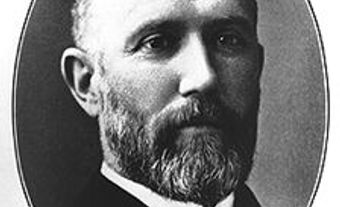Continentalism
Continentalism is a term used to describe the theory of closer ties (eg, in the form of closer trade links, energy sharing or common water-use policies) with the US. An impressive number of the crucial turning points in Canadian political history have pitted the forces of NATIONALISM against those of continentalism. Washington's abrogation in 1866 of the RECIPROCITY Treaty of 1854 deprived Canadians of the considerable access they had enjoyed to the US market, and so contributed to the British North American colonies' decision to federate in order to solve their economic problems. The celebrated NATIONAL POLICY of 1879 was Sir John A. MACDONALD's response to his failure to achieve his preferred policy, a free-trade arrangement with the US. When the government of Sir Wilfrid LAURIER proposed signing a free-trade treaty with the US, it was decisively defeated in the 1911 election by the Conservatives, who exploited anti-American nationalism.
Much of Canadian development can be seen as the product of a dynamic interaction between forces pressing for national autonomy and those pushing for continental integration. Although the extreme form of Canadian continentalism advocates outright political absorption of Canada by the US, such positions have been argued only by fringe elements since the annexation movement died out as a significant political force in the 19th century. The best articulation of current continentalist thinking is in the writings of Canadian mainstream economists who have identified a goal and a program concerning Canada's relationship with the US. The goal is maximum continental integration. "I believe that closer integration of the two economies into one continental economy would be beneficial to both countries, and would involve no loss of any Canadian nationalist objectives worth pursuing," wrote the late Harry Johnson, Canada's pre-eminent economist, in 1965. The program consists essentially of opposition to policies that put obstacles in the way of FOREIGN INVESTMENT and strong advocacy of tariff reduction to the point of achieving continental free trade.
Unrestricted free trade is another important component of continentalism: "A totally free trade situation has to be seen as the best answer to Canada's industrial concerns," since "in a single step our living standards would be raised permanently to a new level," the ECONOMIC COUNCIL OF CANADA suggested in 1975.
Strong hostility to nationalism is a third characteristic of continentalism. Nationalism complicates CANADIAN-AMERICAN RELATIONS, in the opinion of the Canadian-American Committee, an active lobby for American and Canadian conglomerates. "With economic nationalism once again increasing in Western Europe and in other parts of the world, Canada and the United States can ill afford to indulge in measures which involve sacrificing the benefits of economic interdependence," the CAC wrote in 1971. Interdependence, the operative concept, is the natural economic state with which governmental policy should not interfere. A key mechanism for ensuring interdependence is the maintenance of a common market for capital without regard for which country controls the dominant corporations.
Continentalism is not merely an economic phenomenon. Culturally, the dissemination of American values in Canada through the mass media plays a powerful role in instilling American values and attitudes in the Canadian psyche. Canada's integration into US defence planning and the American military-industrial complex was institutionalized by the North American Air Defence command (NORAD) of 1958 and the Defence Production Sharing Arrangement of 1959.
The politics of continentalism is a complex product of the interactions of the American and Canadian governments, corporate interests, public opinion and political parties. Following the 1971 blow to North American harmony provoked by President Richard Nixon's drastic program of PROTECTIONISM, Ottawa responded with a series of nationalist measures designed to protect Canadian interests, eg, the FOREIGN INVESTMENT REVIEW AGENCY, the CANADA DEVELOPMENT CORPORATION and PETRO-CANADA. The unveiling of the ambitious NATIONAL ENERGY PROGRAM in 1980 represented the farthest point to which the nationalism of the Trudeau period went (see ENERGY POLICY). By the late 1980s the reactions to these policies from both American and Canadian interests had moved the Canadian pendulum back again toward continentalism.
Historically dramatic was the shift of the Conservatives beginning in the 1970s from the nationalist position, last espoused by John DIEFENBAKER, to one that is even more continentalist than that of the Liberals. Conservative Prime Minister Brian MULRONEY and his senior Cabinet members have adopted continentalist positions favouring virtually unrestricted American investment, furthering the continental military planning for space-age weaponry and, most notably, negotiating in 1987 a FREE TRADE agreement with the US intended to create a North American energy market, to abolish all tariffs and to accelerate the expansion of US capital throughout the Canadian services industry. In response to what he saw as a "sell out" that gave Canadian business few benefits, John TURNER, Trudeau's successor as Liberal leader, came out against Mulroney's deal with the Reagan administration, and so brought his party back to a position approximating the nationalism of the NDP.
While it has been subjected to far less academic analysis than its opposing ideology, nationalism, continentalism must be recognized as a force that continues to have a powerful impact on Canada's POLITICAL ECONOMY.
See also ECONOMICS.

 Share on Facebook
Share on Facebook Share on X
Share on X Share by Email
Share by Email Share on Google Classroom
Share on Google Classroom


